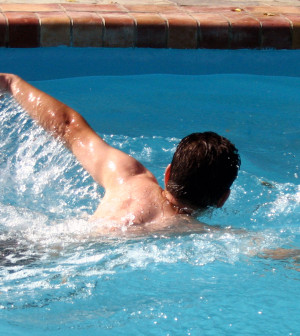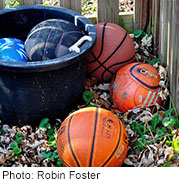- 8 Ways to Increase Dopamine Naturally
- 7 Best Breads for Maintaining Stable Blood Sugar
- Gelatin vs. Collagen: Which is Best for Skin, Nails, and Joints?
- The Long-Term Effects of Daily Turmeric Supplements on Liver Health
- Could Your Grocery Store Meat Be Causing Recurring UTIs?
- Are You Making This Expensive Thermostat Error This Winter?
- Recognizing the Signs of Hypothyroidism
- 10 Strategies to Overcome Insomnia
- Could Artificial Sweeteners Be Aging the Brain Faster?
- Techniques for Soothing Your Nervous System
Kids Bullied During Gym Class May Stop Exercising


Children who are bullied during gym classes or while doing other types of exercise and sports are less likely to be physically active, a new study finds.
Researchers looked at students in grades 4 and 5 at six elementary schools in the U.S. Midwest. The kids were surveyed at the start of the study, and again a year later.
Overweight, obese and normal weight children who said they were bullied during physical activity tended to exercise less a year later, according to the findings published in the January/February issue of the Journal of Pediatric Psychology.
A number of studies have linked bullying with decreased exercise among obese or overweight youngsters, but the researchers said they were surprised to find that this was also true among normal weight children.
“Our finding that this applies to normal weight kids also was novel,” study author Chad Jensen, a psychology professor at Brigham Young University, said in a university news release.
The study also found that overweight youngsters who were teased during exercise and sports had poorer health-related quality of life and lower physical, social and academic abilities.
“If we can help them to have a better perception of their physical and social skills, then physical activity may increase and health-related quality is likely to improve,” Jensen said.
He noted that most schools now have anti-bullying programs, but these findings show that it’s important to have policies that specifically discourage bullying based on a child’s physical abilities.
“We hope our study will raise awareness that educators should consider bullying prevention during physical education and free play [recess] when kids may be discouraged from being physically active because of teasing experiences,” Jensen added.
More information
The American Heart Association has more about physical activity and children.
Source: HealthDay
Copyright © 2026 HealthDay. All rights reserved.










